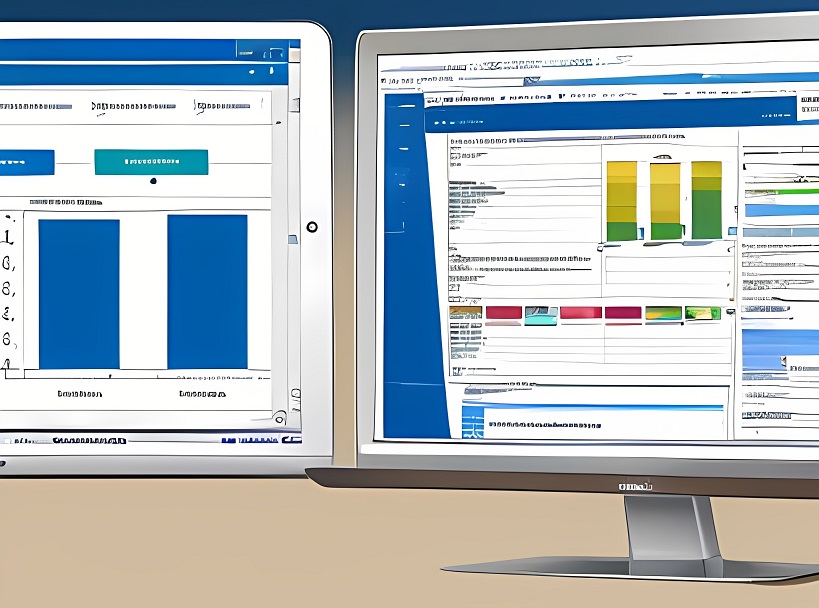CIO: The decision-maker who leads the enterprise towards intelligence
As the senior manager of an enterprise, the CIO is responsible for formulating and executing the enterprise's information technology strategy. They need to comprehensively understand the business needs of the enterprise, formulate corresponding information strategies, and promote the digital transformation of the enterprise. CIOs need to have strategic thinking and be able to formulate corresponding information technology strategies based on the company's long-term development goals. CIOs need to formulate corresponding intelligent strategies based on the company's long-term development goals. They need to clarify the enterprise's intelligent goals, paths and measures to ensure that the enterprise always maintains a clear direction during the intelligent transformation process. In order to achieve the enterprise's intelligence goals, CIOs need to build a complete infrastructure. CIOs need to have a deep understanding of the company's business needs and promote business innovation and optimization. In order to ensure the smooth progress of enterprise intelligent development, CIOs need to establish a complete intelligent governance system.

In today's information and digital era, enterprises are facing unprecedented opportunities and challenges. In this era of change, the CIO (Chief Information Officer), as an important decision-maker of the enterprise, shoulders the important task of leading the enterprise towards intelligence. This article will delve into the CIO’s role positioning, core capabilities, and how to promote the development of enterprise intelligence.
1. The role of CIO
As the senior manager of an enterprise, the CIO is responsible for formulating and executing the enterprise's information technology strategy. They need to comprehensively understand the business needs of the enterprise, formulate corresponding information strategies, and promote the digital transformation of the enterprise. In this process, CIOs need to work closely with various business departments to ensure that information technology and business development complement each other.
2. Core Competencies of CIOs1. Strategic thinking
CIOs need to have strategic thinking and be able to formulate corresponding information technology strategies based on the company's long-term development goals. They need to pay attention to industry development trends and understand the latest technological developments in order to promptly adjust the enterprise's information strategy.
2. Teamwork
CIOs need to have excellent teamwork skills and be able to establish good cooperative relationships with various business departments. They need to understand the needs of various departments, coordinate resources from all parties, and promote the smooth implementation of the project.

3. Innovation ability
In the rapidly developing information age, CIOs need to have the ability to innovate, constantly explore new technology applications, and promote business innovation of enterprises. They need to dare to try and make breakthroughs to create more value for the enterprise.
4. Data-driven decision-making
In the data-driven era, CIOs need to have data analysis capabilities and be able to use data to provide scientific decision-making basis for enterprises. They need to build a data platform, mine the value of data, and help enterprises achieve data-driven decisions.
3. How to promote the development of enterprise intelligence1. Develop an intelligent strategy
CIOs need to formulate corresponding intelligent strategies based on the company's long-term development goals. They need to clarify the enterprise's intelligent goals, paths and measures to ensure that the enterprise always maintains a clear direction during the intelligent transformation process.
2. Build intelligent infrastructure
In order to achieve the enterprise's intelligence goals, CIOs need to build a complete infrastructure. This includes the application of advanced technologies such as cloud computing, big data, and artificial intelligence to provide enterprises with powerful data processing and analysis capabilities.

3. Cultivate an intelligent talent team
Talent is the key to enterprise development. CIOs need to pay attention to the cultivation and introduction of intelligent talents and build a team with high professional qualities and skills. Stimulate employees' innovation ability and work enthusiasm through training and incentive measures.
4. Promote business innovation and optimization
CIOs need to have a deep understanding of the company's business needs and promote business innovation and optimization. They need to use advanced information technology to digitally transform business processes to improve work efficiency and customer satisfaction. At the same time, through data analysis and mining, it provides enterprises with more accurate market insights and decision-making support.
5. Establish an intelligent governance system
In order to ensure the smooth progress of enterprise intelligent development, CIOs need to establish a complete intelligent governance system. This includes formulating intelligent standards, specifications and management systems to ensure that enterprises can achieve standardized and sustainable development during the process of intelligent transformation.
Conclusion: In this ever-changing information age, CIOs are playing an increasingly important role as decision-makers leading enterprises toward intelligence. They need to constantly update their concepts and improve their capabilities to cope with the changing market environment and corporate needs. By formulating intelligent strategies, building infrastructure, cultivating talent teams, promoting business innovation and optimization, and establishing governance systems, CIOs will help enterprises remain invincible in the fierce market competition.